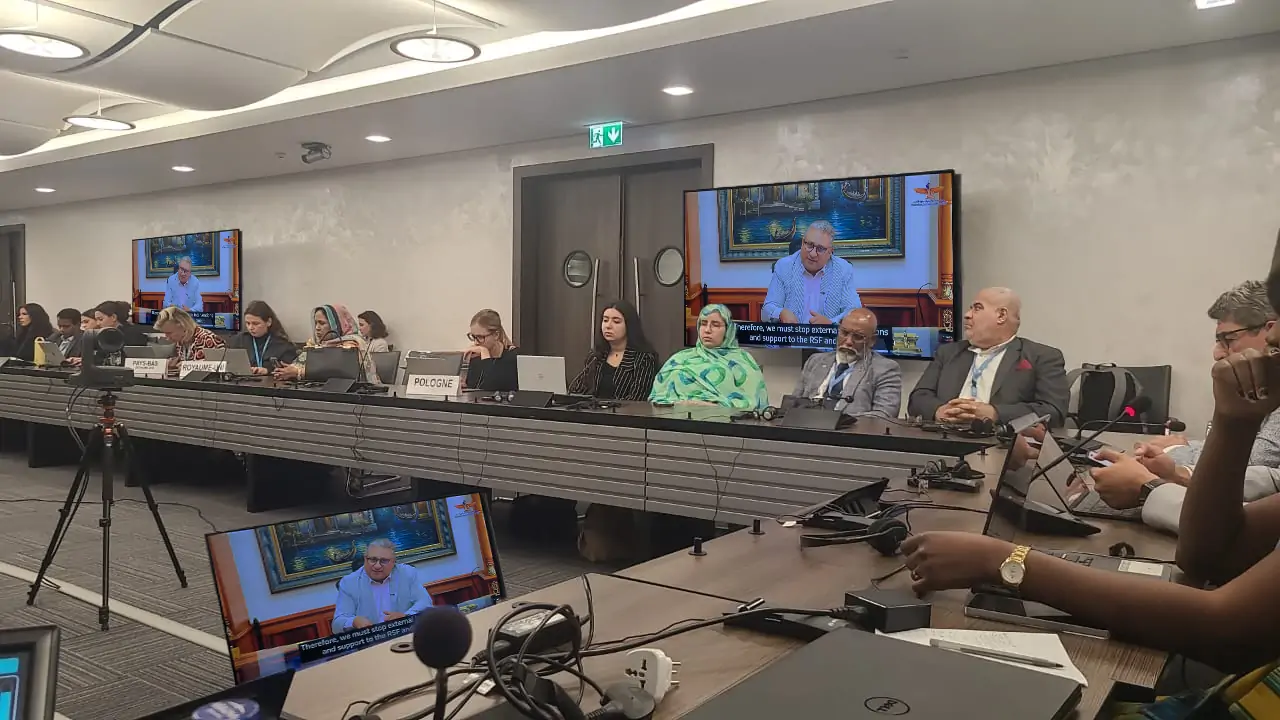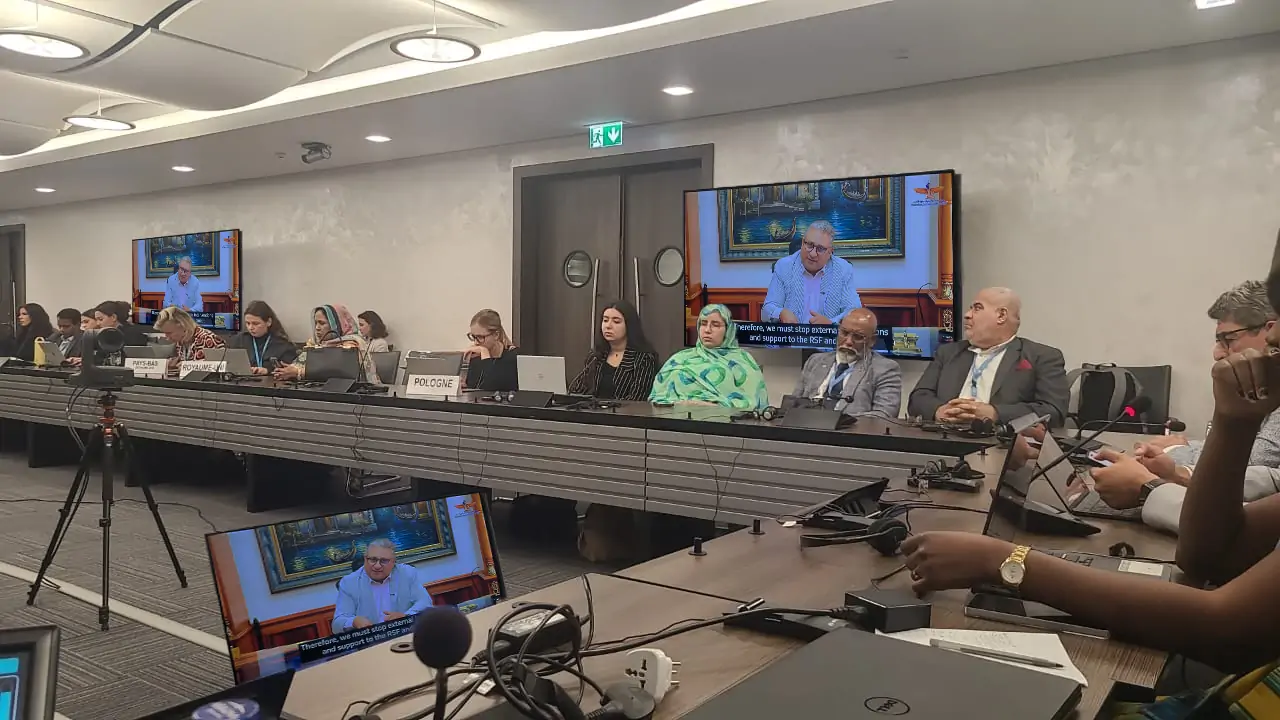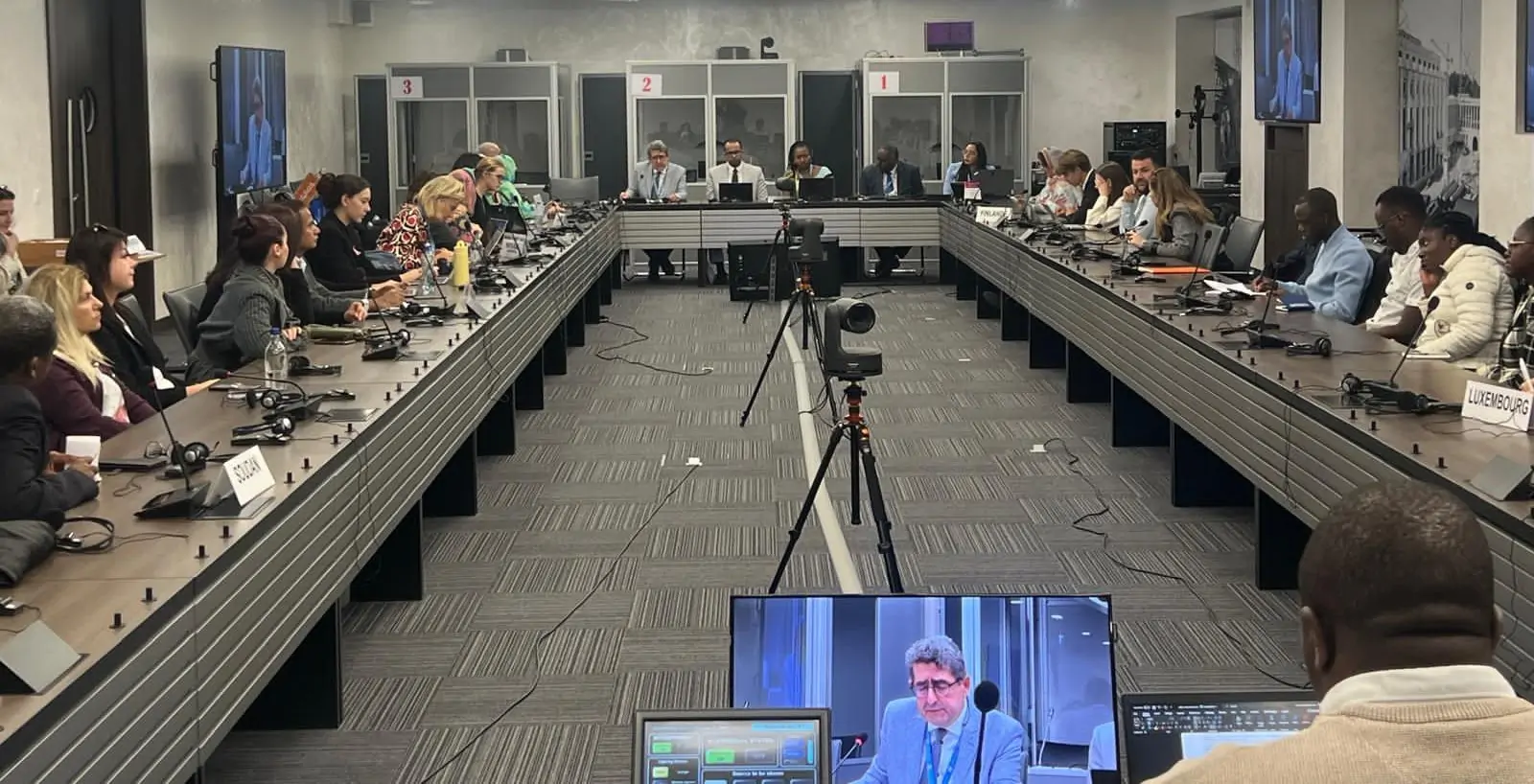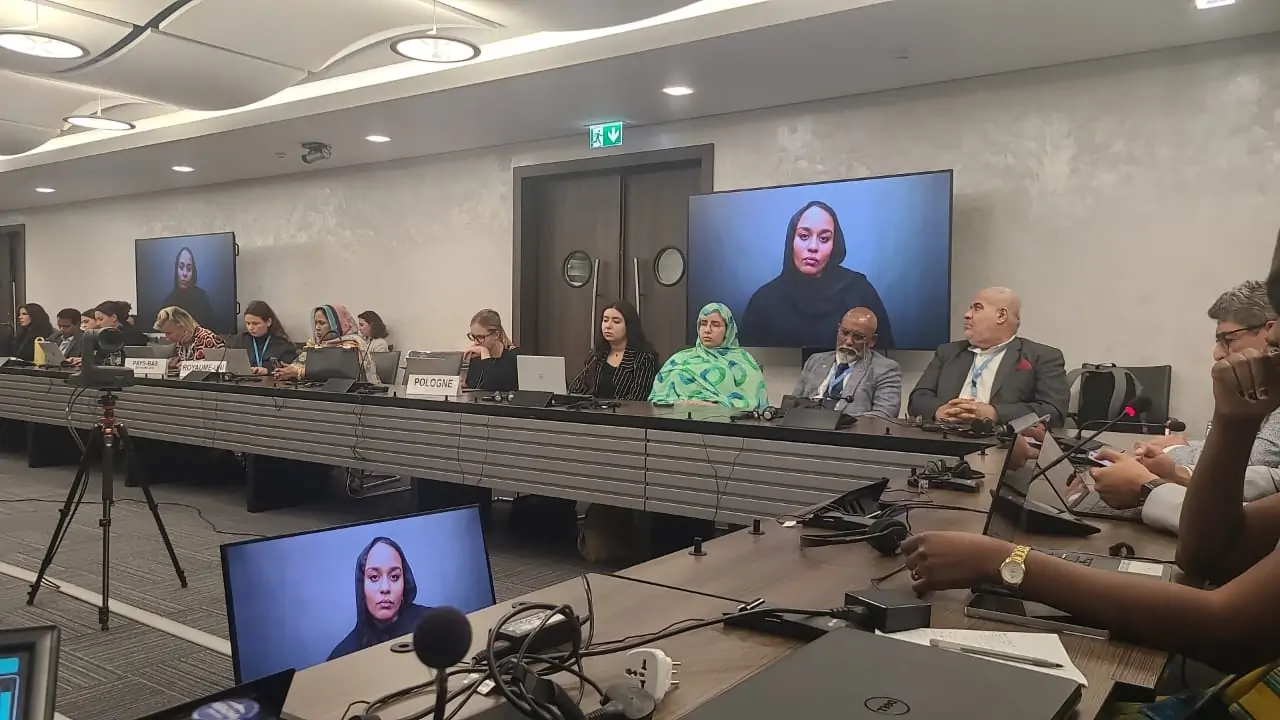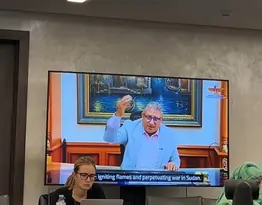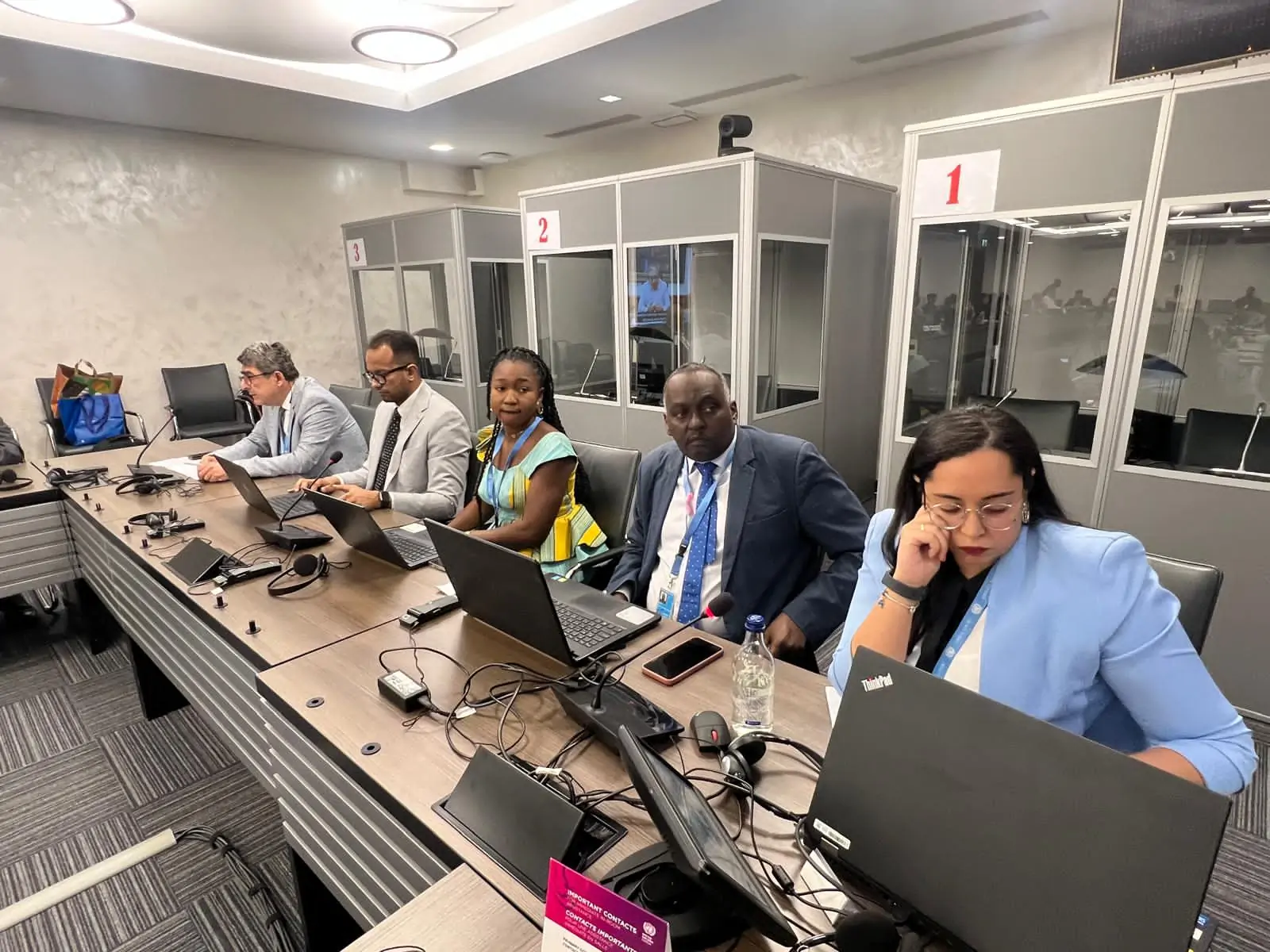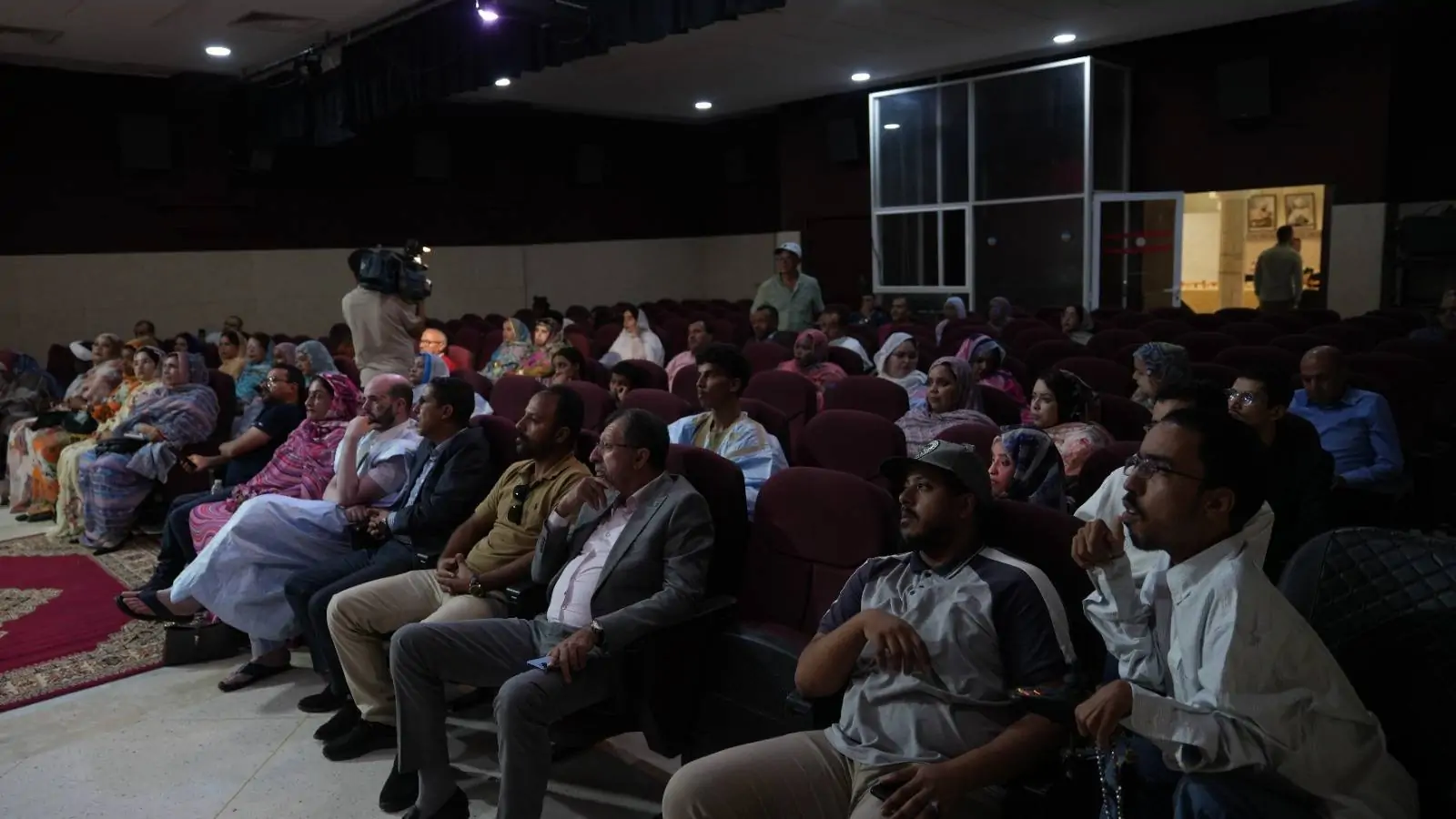"Okeil": RSF militia has committed war crimes and crimes against humanity
Marina Sabry: Sudan is one of the largest humanitarian disasters in the world
Mohamed Saleh: Attempts to form parallel governments do not serve the interests of the Sudanese people
Mehmet Şükrü: The presence of mercenaries exacerbates the depletion of Sudan's resources
Leiman Boussif: The siege of Al-Fasher is a collective punishment for civilians
Souad Abdel Aziz: Women are victims of rape and sexual violence used as a weapon of war
Charlotte Bama: 25% of Sudanese women are under threat of gender-based violence
Organized Maat for Peace, Development and Human Rights A side event titled "Human Rights in Sudan" was held at the United Nations Palace in Geneva, on the sidelines of the 60th session of the Human Rights Council.
The event highlighted the deteriorating humanitarian situation in Sudan after more than 900 days since the outbreak of war ignited by the Rapid Support Forces (RSF) militia, which has seen systematic violations against civilians, including mass killings, sexual violence, child recruitment, destruction of infrastructure, and looting of property, along with the siege of Al-Fasher city resulting in a severe humanitarian crisis characterized by shortages of food, medicine, and clean drinking water.
The event was moderated by Marina Sabry, Director of the International Mechanisms Unit at Maat, who emphasized that the war in Sudan represents one of the worst humanitarian disasters in the world, noting that women and children are the most affected by the conflict. Sabry added that the RSF have recruited more than nine thousand children since the outbreak of war, constituting a gross violation of international humanitarian law.
Ayman Okeil, ECOSOCC Deputy Presiding Officer for North Africa and Chairman of Maat, stated that Maat has gathered credible field testimonies proving that the RSF militia has committed war crimes and crimes against humanity by using white phosphorus and drones against civilians. Okeil confirmed that these actions represent a flagrant violation of Security Council resolutions regarding the arms embargo, pointing to the involvement of Colombian mercenaries in the Sudanese war, as acknowledged by the Colombian government.
Mohamed Saleh Mohamed Yassin, President of the Nubian Center for Peace and Democracy (NCPD), reviewed the historical background of the conflicts in Sudan, clarifying that they have led to one of the largest humanitarian crises globally. He noted that the illegal trafficking of Sudan's resources, tribal affiliations, and the misuse of religion were among the main reasons for the outbreak of war, affirming that attempts to form parallel governments do not serve the interests of the Sudanese people.
Mehmet Şükrü Güzel, founding president of the Center for Peace and Reconciliation Studies, spoke about the dangers of armed militias and mercenaries in conflicts, explaining that the exploitation of natural resources and war financing is the foundation of the ideology driving the RSF, which hinders any political roadmap toward peace.
Leiman Boussif, President of the Regional Foundation for Young Leaders in Economy and Politics, confirmed that the city of Al-Fasher is facing a suffocating siege that has cut it off from the outside world, resulting in shortages of water, food, medicine, and electricity, in addition to targeting journalists and civil society organizations, which he described as collective punishment for civilians.
Souad Abdel Aziz, founding president of the "End Colonialism in Sudan" organization, stated that women and girls in Sudan are subjected to genocide and organized sexual violence used as a weapon in the war, emphasizing that these violations would not continue without external interventions and the funding of mercenaries, amid a concerning culture of international impunity.
Charlotte Bama, a representative of the Elizka Relief Organization, confirmed that 25% of Sudanese women are at risk of gender-based violence, pointing to rising rates of forced marriages in exchange for protection or out of fear of social stigma, as well as food shortages and the prevalence of enforced disappearances, in the absence of men and the necessity for women to bear the burden of supporting families.
The speakers concluded the event with a set of recommendations directed at the Human Rights Council and the international community, the most important of which were to halt military funding and supplies to the RSF militia, ensure safe corridors for delivering humanitarian aid within Sudan, especially to Al-Fasher, lift the siege imposed on civilians, and hold those involved in violations accountable to end impunity.
shortlink: https://maatpeace.org/en/?p=45443


